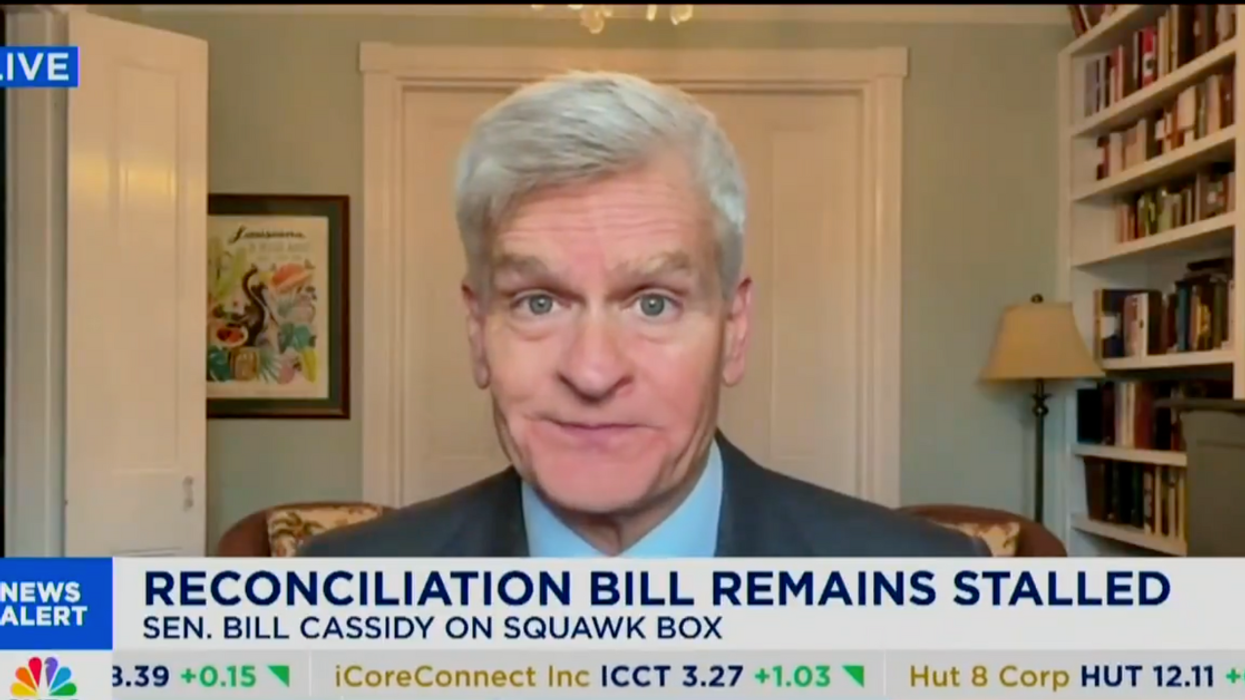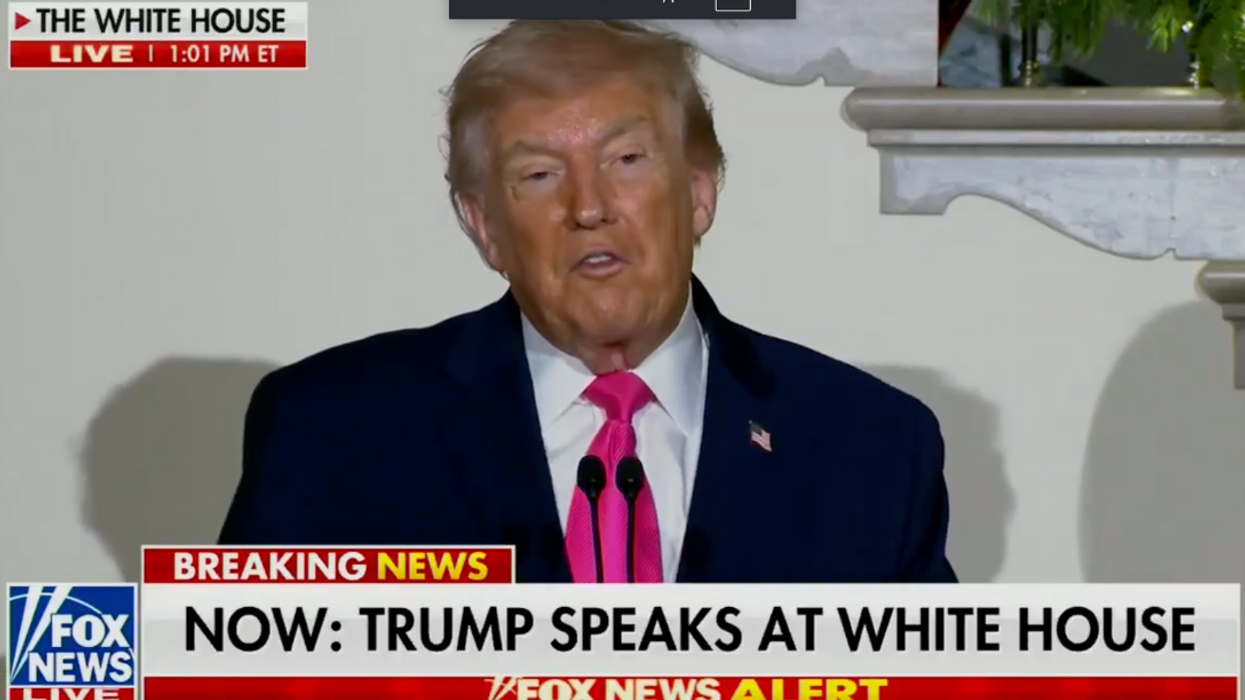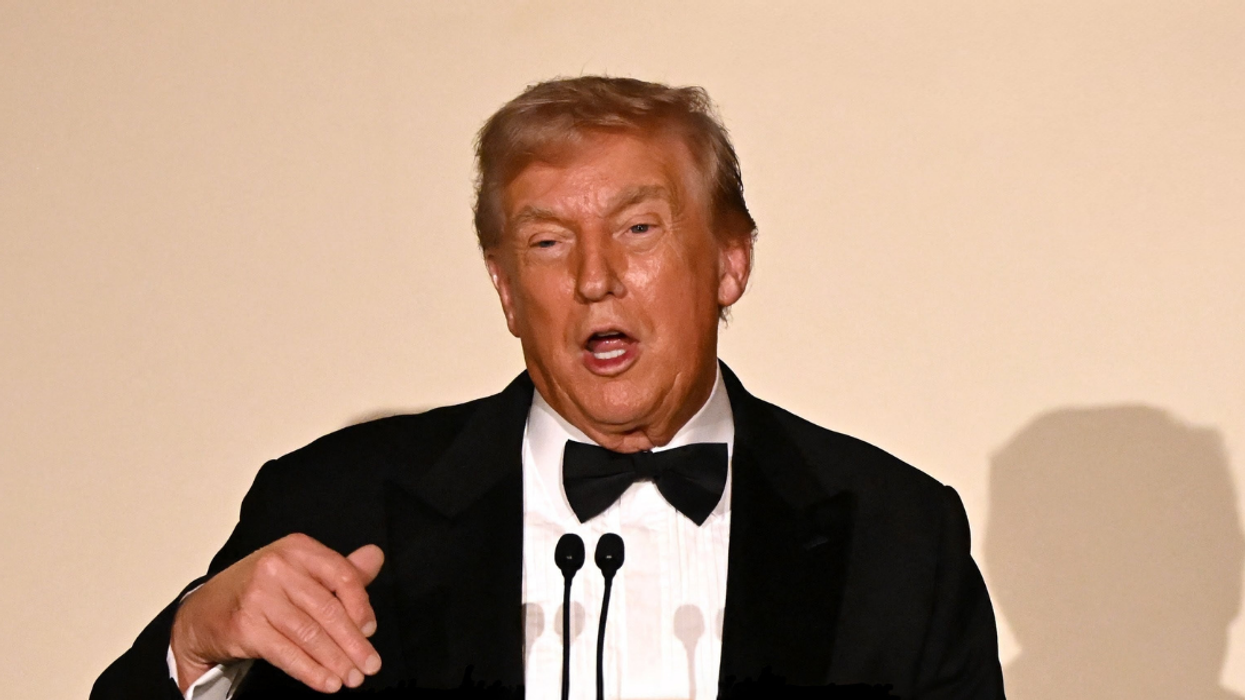Louisiana Republican Senator Bill Cassidy was widely mocked following his inconvenient slip of the tongue during a CNBC interview as he mused about finding ways to "cut" Medicare before quickly correcting himself.
The exchange occurred after host Rebecca Quick pressed Louisiana Republican and former physician Bill Cassidy on how his party intended to fund the “trillion-dollar tax cuts” sought by President Donald Trump.
When Quick pointed out that the Committee for a Responsible Federal Budget estimates the cuts could reduce revenue by as much as "$11.2 trillion over the next decade," Cassidy defended Trump’s stance, insisting that he "doesn’t want to touch Medicare and Medicaid."
He said:
“What he means is not don’t go after things which was inappropriate spending. He’s saying, don’t cut benefits to beneficiaries.”
Here it's worth noting that the 2025 Republican budget proposal calls for $2 trillion in mandatory spending reductions. While it doesn’t explicitly outline cuts to Medicare or Medicaid, analysts argue that reaching such a financial target without affecting the two programs would be difficult. Currently, nearly 70 million Americans depend on Medicare, while about 80 million receive Medicaid benefits.
Cassidy then suggested applying billionaire Elon Musk’s Department of Government Efficiency (DOGE) model to entitlement programs—though not without a major Freudian slip, correcting himself quickly:
“Let’s bring that approach not to just what DOGE is doing, discretionary spending, but let’s look at Medicare. Is there some way that we can cut—excuse me—reform Medicare so that benefits stay the same? But that is less expensive, more efficient, I would say that there is, and that's where our opportunity lies."
You can watch what happened in the video below.
It was impossible to miss—and Cassidy was quickly called out for it.
Since returning to the White House, Trump has vowed to crack down on fraud in Medicare, Medicaid, and Social Security, while his Republican allies in Congress have used fraud prevention as a justification for proposed Medicaid spending cuts.
During a recent address to Congress, Trump claimed his administration had uncovered “hundreds of billions of dollars of fraud,” though he did not provide specific examples.
However, Trump’s tough-on-fraud rhetoric contrasts sharply with his past actions.
In both his first and second terms, he granted pardons or commutations to at least 68 individuals convicted of fraud or obstructing fraud investigations, according to a KFF Health News review of court and clemency records, DOJ press releases, and news reports.
Among them, at least 13 were involved in Medicare and Medicaid fraud schemes totaling over $1.6 billion, per the Department of Justice.
Adding to the contradiction, one of Trump’s earliest moves upon reentering office was the dismissal of 17 independent inspectors general—officials tasked with identifying fraud and waste across the federal government.















 @realDonaldTrump/Truth Social
@realDonaldTrump/Truth Social
